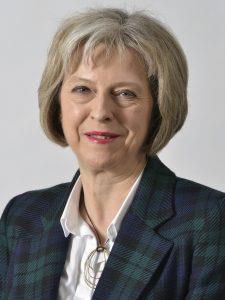Speaking during a long-awaited speech on 17th January, Theresa May stated the UK must not remain within the European single market.

The Prime Minister described staying within the single market as “not leaving the EU at all” but stressed that she will be pushing for the “greatest possible access” to the single market following Brexit.
She also revealed that Parliament would vote on the final deal agreed between the UK and the European Union.
May vowed an end to the UK's "vast contributions" to the EU and announced the UK’s top priorities for Brexit negotiations.
These priorities included: Maintaining the common travel area between the UK and Irish Republic, tariff-free trade with the EU, a customs agreement with the EU, new trade agreements with countries outside the EU and continued "practical" sharing of intelligence and policing information and a "control" of immigration rights for EU citizens both in the UK and in the EU.
She said: "This agreement should allow for the freest possible trade in goods and services between Britain and the EU's member states.”
Food & Drink Federation director general Ian Wright CBE has already responded to May’s speech.
He said: “We welcome the fact that the Prime Minister has provided some much needed additional clarity on her Government's approach to plans for the UK's EU exit.
“We welcome the Prime Minister's commitment to securing the freest and simplest possible trade arrangements with the EU. We are also encouraged that the PM hopes to adopt a phased approach to Brexit which offers businesses time to prepare and plan as opposed to a potentially fatal jump from the cliff edge.
“We understand the Prime Minister's wish to control immigration and attract the brightest and best global talent. Our industry also needs access to workers with a range of skills - some not widely available in the UK - so we welcome the assurances for current EU workers and look forward to understanding better how her proposals will impact on future access to skilled and semi-skilled workers from the EU.
“On Ireland, there is a complete co-dependency in food and drink production between the UK and Republic of Ireland. We urge the Government to find a practical solution which avoids the introduction of any kind of ‘hard’ land border which would damage both economies.
“Finally, we continue to urge the government to ensure that any proposed changes to food and drink regulation as between the UK and EU – and across the devolved administrations of the UK – are identified well in advance and are subject to detailed consultation with industry to maintain consumer confidence in the UK’s world-leading food industry.”
National Pig Association chief executive Zoe Davies added: "While the nature of future trade arrangements will have a huge impact on the viability of UK pig sector, currently the industry’s biggest concern is access to labour.
“Without EU labour there will be no British pig industry as we know it. We understand why immigration is going go to be a priority for Mrs May but, along with many other sectors, we fear this could result in serious unintended consequences if politics triumphs over economic reality.
“We are heavily reliant on EU labour on our farms, in our processing plants and across the wider industry, to produce British pigmeat, which is so highly valued in our home and export markets. We must do everything we can to retain that access.”
This story was originally published on a previous version of the Meat Management website and so there may be some missing images and formatting issues.












